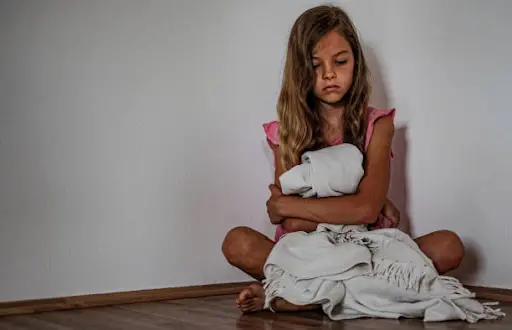"I don't want to" or "I can't": warning signs to pay attention to

War cripples not only bodies but also souls. It traumatizes the psyche, destroys faith in the future and prevents one from moving forward. Ukrainian children who have experienced war-related psychological trauma are at the highest risk. First and foremost, these are those who saw their parents or loved ones killed or injured. They have experienced the fear of adults and witnessed how people who are supposed to be the guarantors of their safety failed to protect even themselves.
"Children from the occupied territories who were hiding in basements and felt powerless in the face of circumstances may later suffer from learned helplessness syndrome," explains psychotherapist Angela Tittel.
In such situations, it is important that the child retain the basic sense of security necessary for normal development. Therefore, adults should monitor their emotions because children will imitate them. "If parents have a hard time, children feel it, and it is a traumatic experience for them. During the full-scale war, many people asked me what to do if a child was worried and couldn't sleep. And every time I answered: what about you? Are you worried? How do you sleep? Almost always the answer was: I'm worried, and I'm awake."
Therefore, it is often necessary to work not with the child, but with the parents. When a mother or father feels better, the child becomes calmer. The main advice for parents and guardians is to first help yourself psychologically, deal with your own feelings. "The child's psyche can recover quickly, but only if the child is with a psychologically stable adult who can cope with their own emotions," the psychotherapist emphasizes.
Angela Tittel names the key "bells and whistles" of learned helplessness, which in the future can turn into an inability to take independent steps in life.
"I can't". One of the symptoms is when a child often says, "I can't", even when it comes to learning a poem, song, or doing homework.
"I don't want to". The second symptom is a decrease in activity and lack of initiative to try something new or do something that promotes development.
"Behind this 'I don't want to' is actually 'I can't'. When a child does not believe in his or her success, it is easier to say 'I don't want to do it' in order not to feel like a failure," the psychotherapist explains.
"Always". The third indicator of the learned helplessness syndrome is manifested when a child systematically expresses negative judgements about himself, often adding the word "always" and thus emphasizing the loss of faith in his own abilities.
"Never" The fourth symptom of learned helplessness is manifested when a child talks about his or her positive desires and dreams, but adds that he or she will "never" be able to achieve them or that such a "never" has never happened in his or her life.
At this stage, children often fail to complete even the smallest task within their reach, especially if they failed the first time.
"If you don't pay attention to this and don't support the child, you can create a situation where subconsciously they are convinced that 'nothing depends on my efforts, everything should come out quickly and easily, and if it doesn't, then I'm unlucky and a failure'," Tittel says.
In addition to poor academic performance, children who develop learned helplessness may carry these practices into adulthood. This can have a negative impact on self-actualization and social adaptation, worsening psychological well-being.









